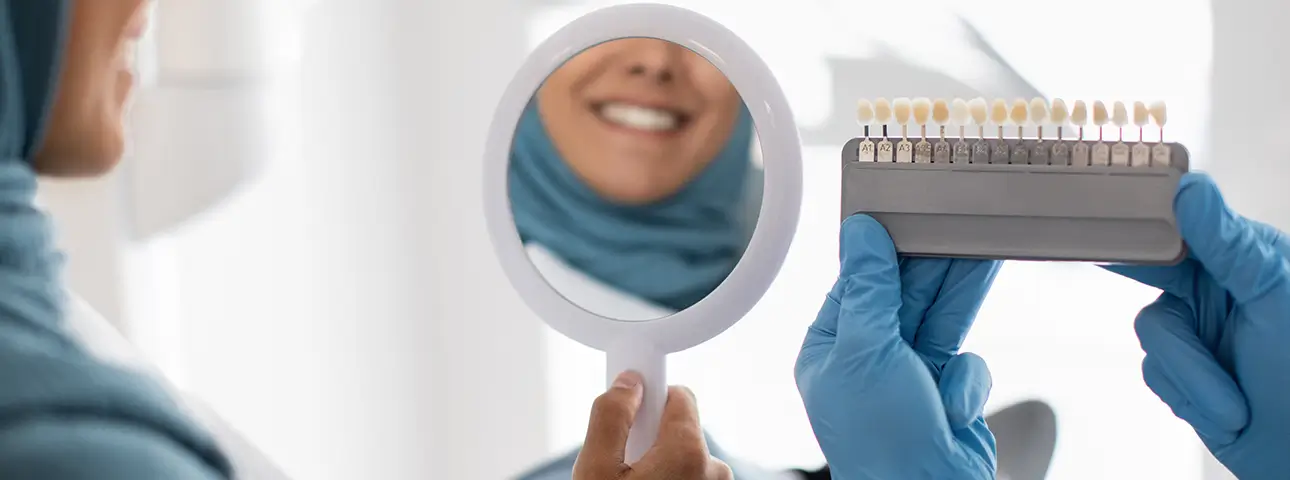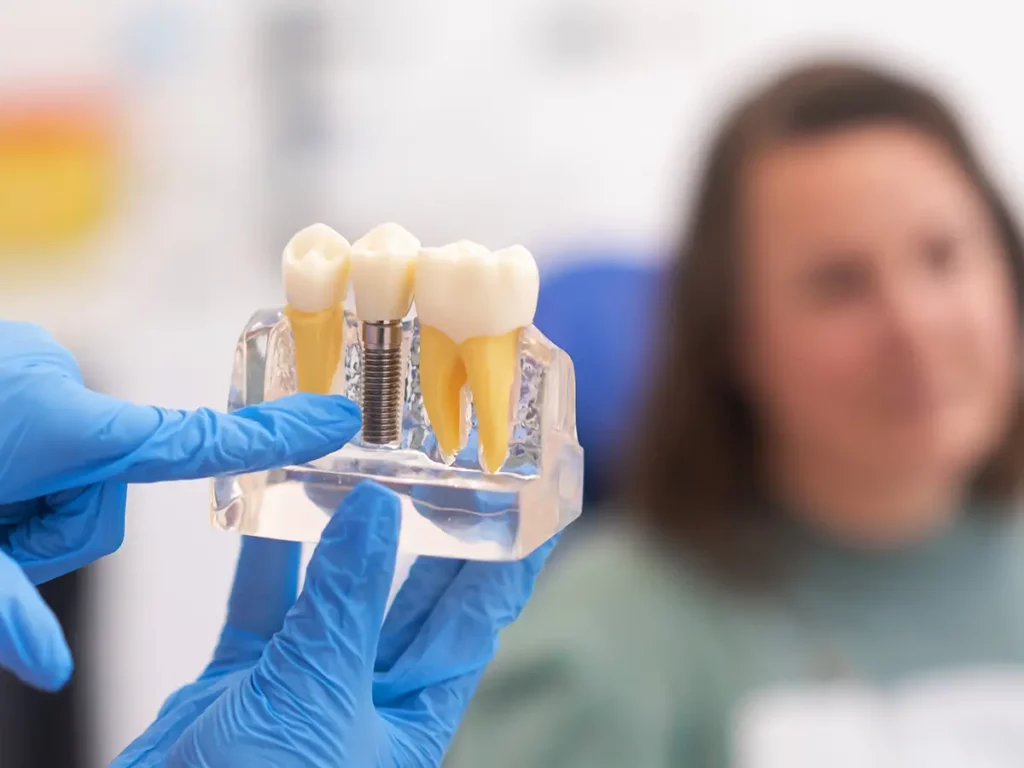Dental Implant types
Endosteal Implants: The Foundation for Tooth Replacement
Endosteal implants in the jawbone support replacement teeth or anchor dentures and bridges. These implants act like natural tooth roots, keeping artificial teeth secure and functioning like natural teeth.
Subperiosteal Implants: Tailored Solutions for Challenging Cases
Subperiosteal implants offer a lifeline for individuals with inadequate bone density. Implants go under the gums and on top of the jawbone to support fake teeth and fix problems with weak bones.
Zygomatic Implants: Innovative Solutions for Complex Cases
Zygomatic implants provide a stable alternative for replacing teeth when bone problems prevent the use of regular implants. They are anchored in the cheekbone.
All-on-4 Implants: Comprehensive Restoration for Improved Oral Health
The All-on-4 technique replaces entire dental arches with just a few strategically placed implants. This approach minimizes surgical procedures while maximizing support for replacement teeth, fostering improved oral health. This implant offers a permanent solution and is more convenient than dentures.
Mini Implants: Versatile Solutions with Expedited Healing
Mini implants, smaller in size, prove beneficial for stabilizing dentures or in cases of limited bone structure. Their minimally invasive nature often translates to reduced healing time and a streamlined implant placement process.
Single-Tooth Implants:
A single-tooth implant is a precise solution for replacing a single missing tooth. The dentist inserts the implant in the jawbone, providing a foundation for an artificial tooth. Single-tooth implants can last long if taken care of properly, replacing a missing tooth without affecting nearby teeth.
Multiple-Teeth Implants:
Multiple-teeth implants are a practical option for individuals missing several adjacent teeth. Instead of replacing each tooth individually, implants can support bridges or dentures spanning multiple missing teeth. This method uses implants to support a bridge or denture, improving the appearance and function of many missing teeth. This solution prevents the need for individual implants for each missing tooth, offering a more efficient restoration.

Bone Grafting:
Bone grafting is a supplemental procedure often necessary for individuals with insufficient bone density in the jaw. This procedure becomes essential when the jawbone lacks the necessary volume or structure to support implants.
This process involves augmenting the existing bone by transplanting bone tissue to the deficient area. It promotes bone regeneration, providing a stronger foundation for successful implant placement. Bone grafting increases the likelihood of a successful implant. This allows more individuals to receive the treatment, even if previously ineligible.
Same Day Implants:
Same-day implants offer a revolutionary solution for individuals seeking quick smile restoration. Same-day implants fit artificial teeth immediately, unlike traditional implant procedures that require a healing period and temporary crowns. This immediate functionality restores aesthetics and facilitates immediate chewing and speech capabilities. Not all cases can have same-day implants, depending on factors a dentist checks during consultation.
Benefits and Advantages of Dental Implants
Dental implants offer several benefits and advantages compared to other treatment plans, such as dentures.
Improved Appearance and Confidence
Dental implants boost your confidence and improve your appearance. Their look and feel are like natural teeth. Dental implants stop bone loss and maintain your face’s natural shape, preventing a sunken or old look.
Improved Speech and Eating
Missing teeth can impact your speech and eating habits. Dental implants fill these gaps and provide a strong foundation.
Long-Lasting and Durable
Proper maintenance and cost-efficiency can ensure that dental implants last long.
Easy Maintenance
Patients can maintain dental implants like natural teeth. Regular brushing, flossing and dental visits ensure their durability.
Improved Oral Health
Dental implants help preserve surrounding healthy and natural teeth as they do not need removal or alterations. This improves your overall oral health.
Improve Your Oral Health Today
Knowing different dental implant types and their benefits helps people make informed choices about oral health. Patients can keep their implants and smiles healthy by planning and practicing oral hygiene.
This includes regularly brushing and flossing. Contact us today to learn more about our different dental implant treatment options.

